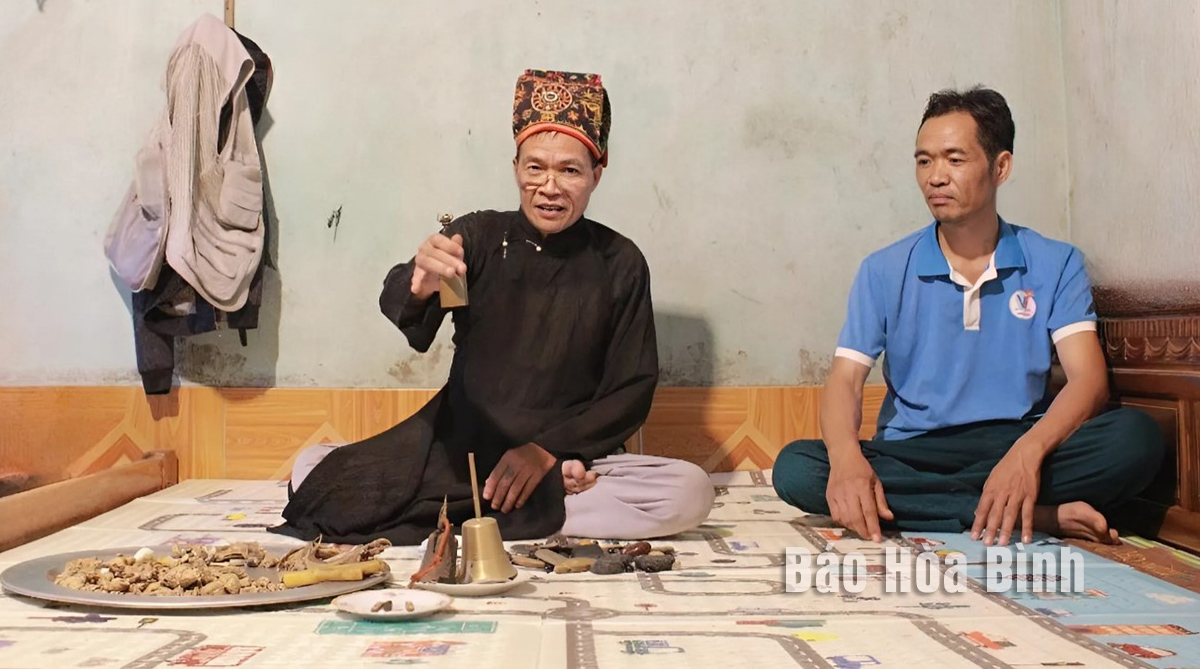The authorities and community in Yen Thuy district are dedicated to preserving and promoting the cultural heritage of ethnic groups in the locality. Yen Thuy is home to seven ethnic groups, with the Muong making up over 69% of the population.
Meritorious Artisan Truong Duc Him, Vice
Chairman of the Mo Muong Club of Yen Thuy district, introduces the Mo Muong
cultural heritage.
Among the cultural treasures of the Muong
people, traditional stilt houses stand out as a significant cultural trait.
Currently, there are about 20 traditional stilt houses in the district.
However, few Muong families are living in such houses, as many have
deteriorated while many others have been replaced with brick and concrete
structures.
Tran Huu Hau, deputy head of the district’s
Department of Culture and Information, shared that a project has been
implemented to preserve and promote the cultural identity of local ethnic
groups from 2021 to 2025, with a vision extending to 2030. Preservation efforts
will be strengthened in the coming years, particularly for the Muong gong
cultural heritage, with the active engagement of the Party Committee,
authorities, and the local community in the district. The district currently
houses nearly 300 Muong gongs.
To further support these initiatives, several
clubs have been established in the district to promote traditional cultural
values. The Mo Muong Club, founded in 2021, consists of nearly 30 shamans, and
two Mo Muong artisans have been recognised as excellent practitioners in the
field of intangible cultural heritage. The district encourages other localities
to replicate this club model to help preserve the Muong language and traditional
costumes.
Additionally, the district has established 11
communication teams at the communal level, along with 115 teams at the hamlet
level. These teams participate in community festivals and annual contests held
by the district, helping maintain various festivals, ethnic musical
instruments, cuisine, and folk games.
Yen Thuy district also organises Muong language
classes and encourages schools to promote cultural heritage among students.
Moving forward, Yen Thuy aims to further engage
the community in preserving and protecting traditional cultural values while
fostering a new cultural life. The district targets the preservation of
intangible cultural forms within community life and seeks to enhance the
tourism potential of its cultural heritage, thereby contributing to local
socio-economic development.



